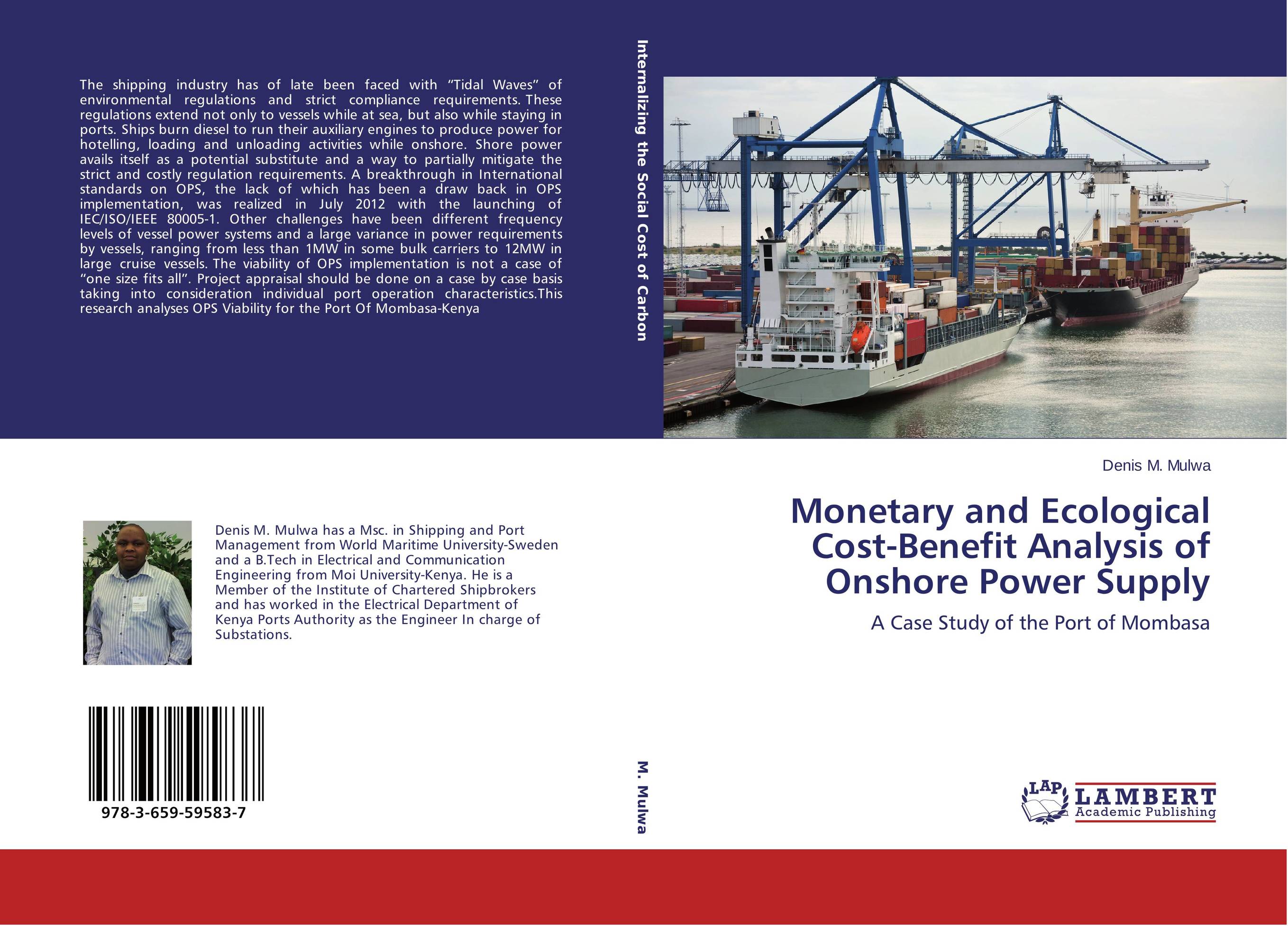| Поиск по каталогу |
|
(строгое соответствие)
|
- Профессиональная
- Научно-популярная
- Художественная
- Публицистика
- Детская
- Искусство
- Хобби, семья, дом
- Спорт
- Путеводители
- Блокноты, тетради, открытки
Monetary and Ecological Cost-Benefit Analysis of Onshore Power Supply. A Case Study of the Port of Mombasa

В наличии
| Местонахождение: Алматы | Состояние экземпляра: новый |

Бумажная
версия
версия
Автор: Denis M. Mulwa
ISBN: 9783659595837
Год издания: 2014
Формат книги: 60×90/16 (145×215 мм)
Количество страниц: 164
Издательство: LAP LAMBERT Academic Publishing
Цена: 32711 тг
Положить в корзину
| Способы доставки в город Алматы * комплектация (срок до отгрузки) не более 2 рабочих дней |
| Самовывоз из города Алматы (пункты самовывоза партнёра CDEK) |
| Курьерская доставка CDEK из города Москва |
| Доставка Почтой России из города Москва |
Аннотация: The shipping industry has of late been faced with “Tidal Waves” of environmental regulations and strict compliance requirements. These regulations extend not only to vessels while at sea, but also while staying in ports. Ships burn diesel to run their auxiliary engines to produce power for hotelling, loading and unloading activities while onshore. Shore power avails itself as a potential substitute and a way to partially mitigate the strict and costly regulation requirements. A breakthrough in International standards on OPS, the lack of which has been a draw back in OPS implementation, was realized in July 2012 with the launching of IEC/ISO/IEEE 80005-1. Other challenges have been different frequency levels of vessel power systems and a large variance in power requirements by vessels, ranging from less than 1MW in some bulk carriers to 12MW in large cruise vessels. The viability of OPS implementation is not a case of “one size fits all”. Project appraisal should be done on a case by case basis taking into consideration individual port operation characteristics.This research analyses OPS Viability for the Port Of Mombasa-Kenya
Ключевые слова: Externalities, Onshore Power Supply, Social Cost of Carbon



